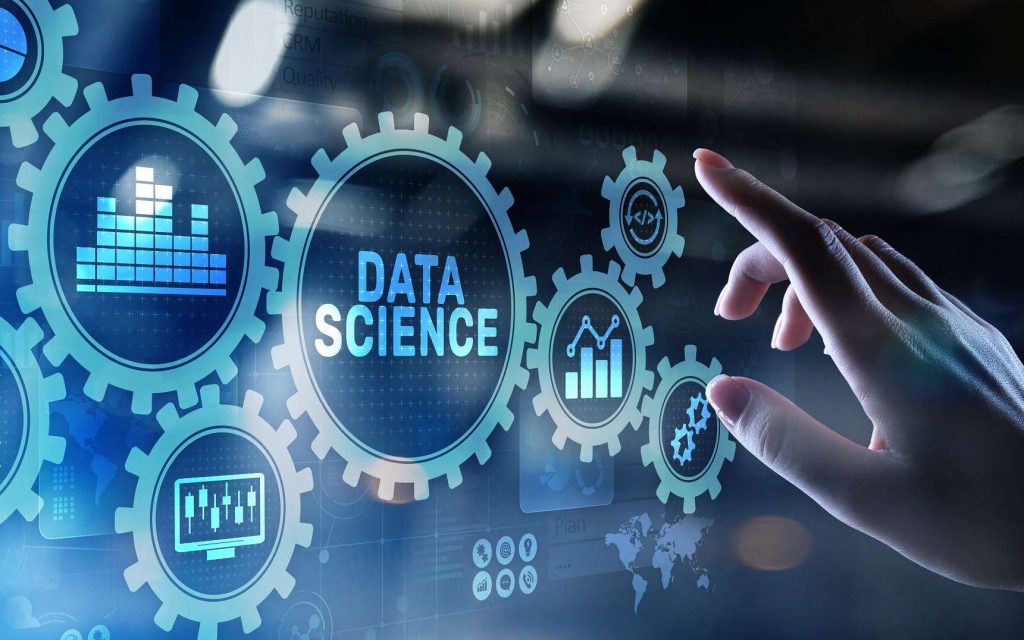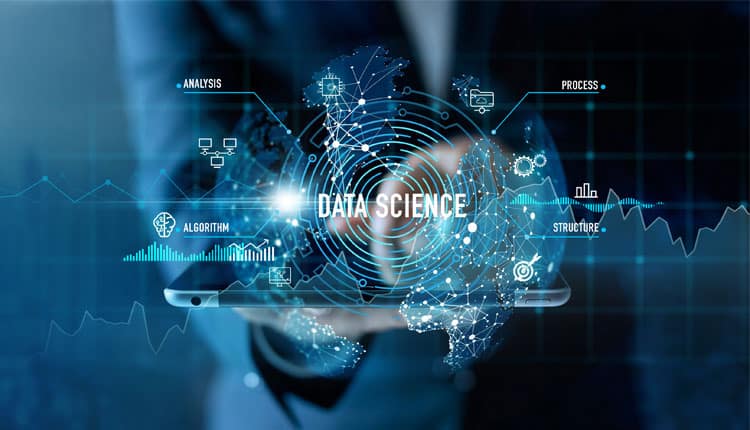To become a data scientist, you need to learn a few important things. First, study math and computer science in school. Then, get good at using computer programs like Python and R. You also need to understand statistics, which is about looking at data and finding patterns.
It’s important to practice by doing projects and maybe even internships. You can specialize in a certain area like healthcare or finance if you want. Keep learning new things because this field changes fast.
Lastly, it’s helpful to be good at talking to people and solving problems. Being curious and never giving up are key to being successful in this cool job!
How important is a bachelor’s degree for becoming a data scientist?

While a bachelor’s degree is often seen as the minimum educational requirement for many data science positions, its importance can vary depending on several factors:
Industry Standards
Many industries, including technology, finance, healthcare, and e-commerce, have come to expect candidates for data science positions to possess at least a bachelor’s degree.
This expectation stems from the technical nature of the work involved in data analysis, machine learning, and statistical modeling.
Employers often seek candidates with a solid educational background to ensure they have the necessary quantitative and analytical skills to excel in the role.
Technical Competence
A bachelor’s degree in fields such as computer science, mathematics, statistics, or data science provides a comprehensive education that covers key concepts and tools relevant to data science.
Courses in these programs typically include topics like programming (Python, R, SQL), mathematics (linear algebra, calculus, probability), statistics (descriptive and inferential statistics, hypothesis testing), and data analysis techniques.
These foundational skills are essential for understanding complex data sets, building predictive models, and extracting actionable insights from data.
Job Requirements
Many job postings for data science positions explicitly list a bachelor’s degree as a minimum requirement. This requirement serves as a screening mechanism for employers to filter out candidates who may not have the necessary educational background to perform the job effectively.
However, it’s worth noting that some employers may be open to considering candidates without a bachelor’s degree if they have relevant experience, skills, and a strong portfolio showcasing their data science capabilities.
Career Advancement
While it’s possible to enter the field of data science without a bachelor’s degree through alternative paths such as self-study, online courses, coding bootcamps, or internships, having a degree can provide a competitive advantage in the job market.
Employers may view candidates with a bachelor’s degree more favorably when considering candidates for promotions, leadership roles, or higher-paying positions within the organization.
Additionally, some companies may have formal education requirements for certain levels of seniority or specialized roles within the data science field.
Specialized Roles
For individuals interested in pursuing more specialized roles within data science, such as machine learning engineer, AI researcher, or data scientist in a specific domain (e.g., healthcare, finance, or cybersecurity), advanced degrees (master’s or Ph.D.) may be preferred or even required.
Advanced degrees provide an opportunity for deeper specialization, research experience, and exposure to advanced topics in data science and machine learning.
Candidates with advanced degrees may be sought after for roles that involve pushing the boundaries of current technology, conducting cutting-edge research, or solving complex problems with data-driven solutions.
What programming languages are essential for aspiring data scientists?

Several programming languages are essential for aspiring data scientists due to their widespread use in the field and their versatility in handling various tasks related to data manipulation, analysis, and visualization. The primary programming languages for data science include:
- Python: This is a super popular language for data science. It’s easy to learn and has lots of tools for working with data.
- R: Another language used a lot for data stuff. It’s good for math and stats things.
- SQL: This is important for getting data from databases. It helps organize and analyze data.
- Java or Scala: These languages are for handling big data. They help with processing lots of data at once.
- Julia: This one is new but becoming more popular. It’s really fast and good for doing math stuff with data.
How can I gain practical experience in data science?
Gaining practical experience in data science involves a combination of self-learning, hands-on projects, and real-world application. First, start by learning the basics, including statistics, linear algebra, and programming languages like Python or R. Online platforms like Coursera, edX, and Khan Academy offer excellent resources for beginners.
Next, enroll in structured data science courses or specialized programs to deepen your knowledge. Platforms like Coursera, Udacity, and DataCamp offer comprehensive courses covering various topics in data science, machine learning, and data analysis. Then, practice your skills by working on personal projects or participating in competitions on platforms like Kaggle. Choose projects that interest you and allow you to apply what you’ve learned, whether it’s analyzing a dataset, building predictive models, or creating data visualizations.
Additionally, consider contributing to open source projects related to data science and machine learning on platforms like GitHub to gain practical experience and collaborate with others. Look for internships, freelance opportunities, or entry-level positions in data science to further apply your skills in real-world settings. Networking with professionals in the field through meetups, conferences, and workshops can also provide valuable connections and mentorship opportunities.
Finally, continue learning and staying updated on the latest trends and tools in data science to maintain your expertise and adapt to industry changes. Building a strong portfolio showcasing your projects, contributions, and work experience will help you stand out to potential employers and launch your career in data science.
What industries benefit most from domain expertise in data science?

Some industries benefit a lot from knowing a lot about both data (like information from computers) and the area they work in. Here are some of those industries:
- Healthcare: People who understand both data and healthcare can use computers to help doctors treat patients better.
- Finance: When people know about both money and data, they can make better decisions about how to invest and manage money.
- Retail: Understanding both data and how stores work helps people figure out what customers want to buy and how much to sell things for.
- Manufacturing: When people who work with data also know about making things, they can use computers to make factories run smoother and make better products.
- Energy and Utilities: Knowing about both energy and data helps people use resources like electricity and water more efficiently, which is good for the environment.
- Agriculture: People who understand both farming and data can use computers to help farmers grow crops better and take care of the land.
- Transportation and Logistics: When people know about both moving things around and data, they can use computers to make shipping and travel more efficient.
FAQ’s
1. Can I become a data scientist in 1 year?
Yes, it’s possible to become a data scientist in one year with focused learning and practice.
2. Is a data scientist an IT job?
No, a data scientist is not typically considered an IT job; it’s more related to data analysis and machine learning.
3. Is 3 months enough for data science?
Three months can provide a good foundation in data science, but mastery usually requires more time and experience.
4. Is 30 too late to start data science?
No, 30 is not too late to start a career in data science; many people transition successfully into the field at various stages of their lives.
5. Is data science a good career?
Yes, data science is considered a good career with high demand, competitive salaries, and opportunities for growth and innovation.
Final Words
Becoming a data scientist is an exciting journey that involves learning, practicing, and staying curious. We’ve learned about the importance of getting a good education, especially in math and computer science.
It’s also important to learn technical skills like programming and statistics, and gaining hands-on experience through projects or internships. Specializing in a certain area, like healthcare or finance, can also be helpful.
Remember, it’s essential to keep learning new things because the field of data science is always changing. And don’t forget to work on your communication and problem-solving skills too. So, if you’re interested in data science, keep exploring and never give up!
